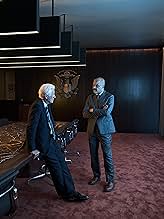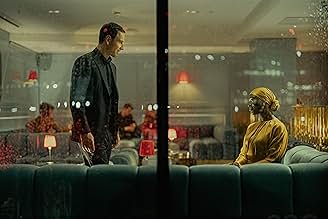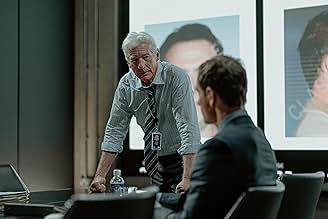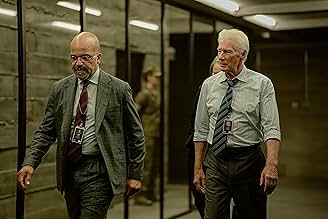The Agency (Season One) manages to be simultaneously awesome and awful; incredibly authentic in the tiniest detail, yet not the least bit credible in the central love story. The series weaves together three major plots involving Ethiopia, Ukraine, and Iran; rivalries between the United States, Great Britain, China, and Russia; and the intertwined personal lives and ambitions of a fairly large cast of characters.
The plot is satisfyingly complex and realistic, although keeping track of all the plots, subplots, duplicities, and deceptions across ten episodes can be challenging, even if one binge-watches. Several loose threads, each involving the demise of a character, are left to the viewer's imagination. The final scene seems a bit rushed and contrived to provide Hollywood endings to several plot threads.
Michael Fassbender plays Martian, a highly-competent CIA field agent who is reassigned to deskwork after an extended tour of duty in Ethiopia, a hub of internal turmoil and geopolitical intrigue. Martian is intellectually brilliant, multilingual, and expert at deceiving and manipulating highly intelligent people who are expert at recognizing deception. He also bears deep psychological wounds.
With one notable exception, performances are excellent, nuanced, and credible, most notably by Michael Fassbender, Jeffrey Wright, Saura Lightfoot-Leon, Richard Gere, and Kurt Egyiawan. While perceptual bias may be involved, the male roles generally seem nuanced and layered, but several of the female roles come across as male characters portrayed by female actors. Martian's daughter Poppy seems inconsistent and contrived to add periodic speed bumps in the script; and the actress seems much too old for the role. As has become de rigueur, all of the onscreen romances save one are cross-cultural. The central role of Sami, Martian's obsessive love interest, is horribly miscast.
Beauty is subjective and attraction can be unpredictable; however, from passport bros to expatriates, financially secure Western guys in Third-World and developing nations can box well above their weight in the game of romance. A guy like Martian working in Ethiopia could credibly find himself aggressively pursued by several stunningly beautiful ladies who would be out of reach for most guys back in the States. Yet, while he seems to have no other romantic interests, he becomes obsessed with a married Muslim woman of mannish stature and appearance, who seems moody and brooding most of the time, is more passionate about forging a political alliance with China than romance, dresses modestly, and is declared strictly off-limits by both his superiors and a ruthlessly protective Ethiopian security agent. The character seems contrived to appeal to a progressive female audience rather than to motivate Martian's choices. Their pairing seems so improbable that other characters are obliged to rationalize it at several points.
The series is so rich in plot complexities, character nuances, and background detail that viewers could watch it several times and appreciate aspects each time which escaped notice on prior viewings.
































